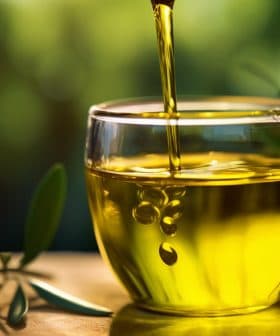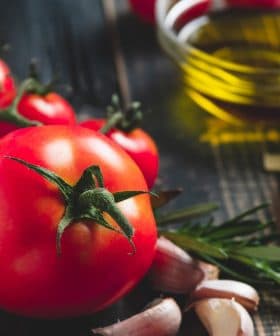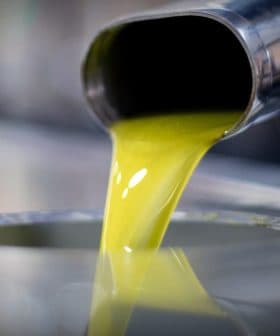Think Twice About Antioxidant Claims
The European Food Safety Authority accepted a claim that olive polyphenols protect blood lipids from oxidative damage, leading to a surge in the market for olive extracts. Nutrition expert John Finley advises caution in making antioxidant claims and emphasizes the importance of obtaining nutrients and bioactives through food rather than isolated extracts for maximum health benefits.
When one of the few food label claims to survive a rigorous European review was the antioxidant effect of olive polyphenols, it made the olive oil sector smile — and the range of olive extracts on the market surge — but here nutrition expert John Finley explains why it’s best to keep a cool head on antioxidant claims.
The claim that olive polyphenols protect blood lipids from oxidative damage (a key factor in cardiovascular disease) was among just a handful of food health claims the European Food Safety Authority (EFSA) accepted last year after reviewing more than 2,700. A register that would approve those claims — and ban the rest — is now before the European Parliament, which is being lobbied to veto it before its scrutiny period ends on April 27.
Meanwhile, the list of players in the olive oil extract space has burgeoned, reports nutraingredients.com, ever since EFSA accepted the antioxidant claim. Suppliers now include Genosa and Probeltebio (Spain), Indena and Phenofarm (Italy), Creagri (US), and Kaneka (Japan) in partnership with Italian olive oil company Costa d’Oro.
Many highlight the EFSA finding and the fact that their extracts contain much higher concentrations of the olive polyphenol hydroxytyrosol than olive oil or olives. A 100mg dose of Genosa-produced Hytolive, for example, is advertised as containing the hydroxytyrosol equivalent of 500ml of extra virgin olive oil.
So if you want to maximize the heart health benefits, are you better off using an extract than olive oil? And what should the olive oil sector take into account when making antioxidant claims? In order to promote debate, Olive Oil Times spoke to nutrition expert Prof. John Finley, the leader of the National Program in Human Nutrition for the U.S. Department of Agriculture, Agricultural Research Service.
If extracts deliver a higher dose of hydroxytyrosol without the fat content of olive oil, are they a better alternative for those who want the antioxidant benefit?
Finley: Definitely not! People have evolved eating food and adapted to the quantities of bioactive compounds in food, so given a choice, obtaining nutrients and bioactives through food is always the best choice. We are learning that for many bioactives, it is not a single substance but the complex milieu in food that provides the benefit. An example is that fruits and vegetables are associated with decreased cancer risk, but two large studies that fed isolated beta-carotene (the substance from fruits and vegetables thought to be responsible for the decrease in cancer) actually increased lung cancer.
Also, remember the old maxim of toxicology: “Dose makes the poison”. This is especially true with nutrition as there are usually three subsets of biological effects: deficiency, where adding more of a substance improves health; adequacy, where adding more neither improves health nor has a deleterious effect; and toxicity, where adding more results in damage to health. Toxicity may not only manifest itself by causing direct harm, but also by causing nutritional/metabolic imbalances that then result in harm.
Olive oil not only has hydroxytyrosol in it but a natural blend of other compounds, and humans evolved consuming foods like olive oil. They did not evolve consuming hydroxytyrosol, and thus we do not know how the body may react to high doses of purified hydroxytyrosol. Also keep in mind that many consumers are of the mindset that if “a little helps you, a lot may cure you of all ills”.
What should the food and nutrition industry bear in mind in relation to the use of claims such as the antioxidant one approved by EFSA and now before the European Parliament?
Numerous olive oil claims were submitted to EFSA but only one was allowed – “Protection of LDL particles from oxidative damage”. The panel based its decision on “a well-conducted and powered study, and two smaller-scale studies that showed dose-dependent and significant effects of olive oil polyphenol consumption (for three weeks) on appropriate markers of LDL peroxidation (oxLDL)”. Supporting evidence included “one short-term and one acute study, (that used) markers of LDL peroxidation (conjugated dienes, ex vivo resistance of LDL to oxidation) going in the same direction.
It must be kept in mind that only one of many claims was substantiated, and that one was based on very limited evidence, some of which used unsubstantiated biomarkers. The claim is good for the olive oil industry but it is one that could change rapidly with one negative study (I don’t know the EFSA protocol for re-evaluating health claims).
So my advice would be to use the claim (however have a backup plan if negative data should emerge) but quickly begin work to better support the claim. I don’t think innovation should be the priority at the moment. Instead, it should be clinical trials that continue to focus on the polyphenols and LDL oxidation.
A big question is what is the variation in polyphenol content/composition of olive oil? What are the effects of variety, season, geographical location, processing, storage? What consumer groups benefit the most from olive oil (responders)? Are there groups for which olive oil is bad?
In general, the food and nutrition community should move toward an evidence-based approach for claims; i.e. claims are substantiated or rejected based on very rigorous criteria, primarily human studies that use medically-significant endpoints. There has been much uproar over the rejection of so many claims by EFSA, but this is a result, in part, of the food industry not understanding the rigor of an evidence-based review.
What does the research suggest about the consumer benefits from the antioxidant effects of olive-related products?
The problem with selling “antioxidant” potential is that the concept is still based on out-dated ideas of free-radical scavenging. Free radical scavenging depends on the ability of the body to absorb the scavenger with relative efficiency and transport the scavenger to the site of action; it is also assumed that the component in the food is the active component (i.e. metabolic transformations are either not understood or not considered). Not much is known about any of these processes for the individual polyphenol components of olive oil.
But recent research is showing this to be a simplistic theory, and the true ability of a food component to exert antioxidant function may be mediated through complex pathways unrelated to free radical scavenging.
So in relation to the products, the EFSA health claim may help sell products, but one negative study or data that shows that radical scavenging by olive oil polyphenols is not physiologically meaningful can change all that.
Also, it must be remembered by food companies that any health benefit related to food will result in subsets of “responders” and “non-responders”. Targeting all consumers maximizes sales but also maximizes the risk of having benefits diluted by non-responders. Research targeting a select responder group will be more robust and lead to a stronger set of efficacy data.
Your research suggests a small amount of oxidative stress may actually help prevent some chronic diseases. What are the implications of this for consumers and for those in the food sector?
The implications are that concentrating on a single outcome such as decreasing oxidative stress by consuming traditional antioxidants may not be positive. In fact, some epidemiologic studies suggest that people who consume antioxidant supplements actually live shorter lives than those who do not.
The nutritional challenge of today is obesity and related chronic diseases. Changing obesity does not require the addition or subtraction of foods for an individual. Instead, it requires looking at the overall diet in the context of lifestyle – especially physical activity. We need to stop eating the “right” foods and instead eat a varied diet rich in fruits and vegetables, with a caloric content linked to our physical activity. No foods are inherently ‘bad” – only bad in the wrong amounts. Likewise, many foods, including olive oil, can be “good” in the right amounts but greatly increase obesity in the wrong amounts.
What antioxidant information would be most useful to include on bottle labels?
I disagree with the concept of selling products based on individual “bioactive” components; as a nutritionist, I think the emphasis on dietary ingredients, and not on the overall diet, has, in part, driven obesity and diabetes. Consumers need to look at their diet and lifestyle as a whole – the individual foods and components of foods are not as important as the whole diet. Olive oil can certainly be part of a healthy diet but keep in mind that the consumption of healthy polyphenols is linked to the consumption of lipids and calories; thus olive oil consumption must be balanced within the diet. Depending on factors like age, sex, size and activity level some people may be able to consume fairly large quantities whereas others should consume very little.
What are you currently researching in relation to antioxidants?
As the National Program Leader in Human Nutrition for the Agricultural Research Service, I do not do the research myself, but I set program priorities for other scientists. Our program has much antioxidant research including the following specific projects:
.









